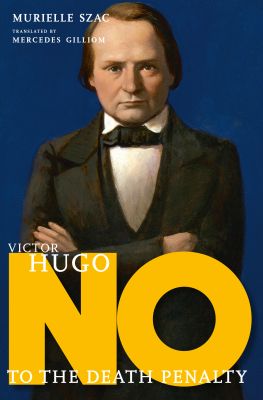The guillotine. When Victor Hugo was a child in early 1800s France, it was common to walk down the street and see a petty thief or vagrant beheaded at the guillotine. It was a brutal punishment and also a public spectacle. Hugo was sickened and haunted by these public executions. For him, no man has the right or the power to end the life of another, whatever the crime committed. Hugo was a poet and novelist, author of Les Miserables and The Hunchback of Notre Dame among many others. But equally important to him was his work that protected life, like his book The Last Day of a Condemned Man, which allowed readers to understand what it might feel like to contemplate one's impending death. He also led a fight to save an assassin named Tapner: he had 'declared war on the guillotine.' Many activists have taken up the fight to end the death penalty. And much progress has been made around the world. Yet many countries - China, Iran, Egypt, the United States and many others - despite calls from those around the world who continue to say no, still allow the death penalty as a form of state-sanctioned punishment.

